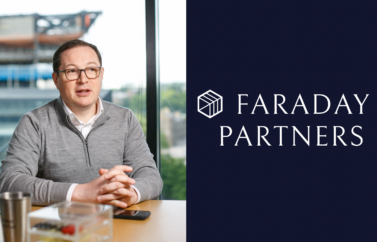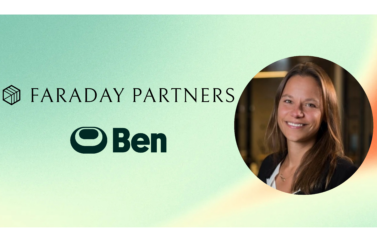I’ve had the privilege of working with many incredible founders over the past 15+ years, advising on building teams across varied business models, sectors and geographies around the world. While every situation and scenario has been unique, one theme is constant – a founder (and their success) is only as good as their team. Founding teams typically have deep domain knowledge, a compelling and ambitious vision to disrupt a market and the hunger and enthusiasm to make things happen. Understanding how to think about what the team might look like and how to go about building it is typically a significant gap in a founder’s skill set.
While every situation and scenario has been unique, one theme is constant – a founder (and their success) is only as good as their team.
What follows are some reflections on the mistakes that founders and their teams often make when imagining their organisations at the earliest phases of growth.
Don’t: rely on hiring through your personal network or hiring someone just because they are available
This is something we see happen frequently. While this might be seen as a route to capturing pre-qualified candidates against short timeframes, it ultimately ends up being somewhat of a lottery. You need to run a defined process to ensure you are not making the wrong compromises which ultimately cost money and slow you down.
Don’t: be un-ambitious with the talent bar
Be aspirational, bold and confident in your ability personally and as a business to attract the very best. That said, you also need to be realistic and not too seduced by shiny logos. Often the very best people may come from places you never first considered.
Don’t: Conduct poor or insufficient referencing
Deep and broad reference checking should not just happen at the end of a process. It is essential to get back-channels early when speaking to a potential candidate in order to feed any perspective into your process early. References taken at the end of a process, while useful to gain further insight and context, should serve to understand how to set the successful candidate up for success.
Don’t: underestimate the time commitment required
Being prepared to commit the required amount of time to a process is the single biggest determinant of a successful outcome. Hiring the very best people will take a large proportion of time from a founder – this is often not appreciated or understood and therefore not prioritised.
Don’t: save the founder interview until the end of the process
When hiring direct reports a Founder needs to be the first person that spends time with a candidate. It shows commitment, that you are serious about the hire and also allows for that initial and critical opportunity to build chemistry and engagement on both sides. Delaying this interaction can often be seen as saving a founder time or an added filter, however, in our experience, pushing this first meeting to others in the business reduces the success rate and the ultimate conversion of the very best people.

Do: plan your organisational design ahead of time
Thinking about the flow of the business model and considering which functions need to be prioritised ensures your early stage hiring is focused, efficient and value-generating.
Do: research and understand the role
It is key to develop your understanding of what the role you are hiring for actually does in order to ensure you are able to qualify, test, assess and measure accordingly.
Do: have a clear understanding of the lifecycle of the role
While there will always be shifts and course changes, having a credible and realistic view here builds confidence and alignment with prospective candidates. If you can’t paint a compelling picture of the problems you want this person to solve and how you see them interacting with and partnering with other stakeholders, you will not attract the most impactful people. Candidates perceive this as a reduction in risk – it assures them that they will be given the right level of autonomy, challenge and support, that the role is at the right level and that they will have the right growth opportunities, all necessary to encourage talent to make a move.
Do: provide robust and impressive supporting information
This includes your brief, investor deck and assessment criteria. The brief – produced as a document or virtually as a video – needs detail about the company, the vision and the role. A well-constructed and well-delivered job description, in whatever format, shows thoughtfulness and commitment to the search that engenders confidence and curiosity.
Do: focus on the founder
The founder is the single most crucial variant in the hiring process. It’s not investors, it’s not funding rounds, and it’s often not about what has been built to date. Joining a business at an early stage is all about the founder.
Do: assess cultural fit
It’s not just about company culture, it’s about shared values and seeing those in action through collaboration. When it comes to determining a candidate’s long-term cultural fit, processes that include live whiteboarding sessions, case-study scenarios, and off-script interactions are most effective. Ultimately, the match comes down to values, vision and building relationships with people.
Do: offer the personal touch
Hiring senior folks at the early stages of growth requires significant personal interaction outside of scheduled interviews and meetings. Building the relationship, developing chemistry and showing your human side is critical to securing the right person.
Do: move with speed and precision
Keeping momentum is key but should not trump structure and process.
Do: ensure candidates have a bespoke journey
While a structured, thoughtful end-to-end process is key, each candidate requires a bespoke journey in order for them to feel they are consistently reducing risk with every interaction. This may mean speaking to a selection of senior management, investors, advisors and even customers. Each candidate will require a different and specific approach – you need to use all the tools and levers possible.
Getting these elements right will ensure the right decisions are made, the best possible people are hired and that your hires will flourish.
This overview is the first of a series where I’ll look to go deeper across three key areas:
- How to think about building an early stage organisation
- Structure of the process and the candidate experience
- A founder’s role in the process
Nick Fairclough has 17 years of experience partnering with and advising many of Europe’s most successful founders, entrepreneurs and boards at every stage of the company lifecycle. He has worked extensively across the global venture capital and private equity markets, helping to create sustainable growth and value.
For more content from Faraday Partners, follow us on LinkedIn.





